The Crusades
Brief Synopsis
Cast & Crew
Cecil B. Demille
Loretta Young
Henry Wilcoxon
Ian Keith
C. Aubrey Smith
Katherine Demille
Film Details
Technical Specs

Synopsis
When the Saracens take Jerusalem in 1187 A.D. and kill or enslave the Christian population, a holy hermit journeys to all the Christian kingdoms to preach a crusade to retake Jerusalem. King Richard of England, lusty and godless, joins the crusade only to avoid marriage to the disagreeable Alice, sister of King Philip of France. While Richard's brother John and France's Marquis of Montferrat conspire to control England and Palestine, Richard is forced to marry Berengaria, Princess of Navarre, to obtain food from her father to feed his starving army. Richard's rough manner and his use of a proxy in the wedding ceremony alienate Berengaria, but when Richard finally sees his bride, he forces her to accompany him to Palestine. During the long battle to take the city of Acre, John seizes Richard's throne, and Philip of France threatens to support John and leave the crusade unless Richard casts Berengaria aside and marries Alice. Richard's refusal to give Berengaria up overcomes her resistance to him, but the two agree not to consummate their marriage until Jerusalem is taken. Realizing that she is the obstacle to a unified war effort, Berengaria tries to commit suicide by exposing herself to enemy fire, but she is only wounded before Saladin, leader of the Islam forces, takes her away and nurses her to health. Spurred on by Berengaria's capture and the martyrdom of the holy hermit, the Christian armies take Acre and ride on to Jerusalem, where their forces are depleted in heavy fighting. Berengaria agrees to give herself to Saladin if he will save Richard from the treachery of Montferrat, and she plans to keep this promise even after Richard negotiates a peace with Saladin that frees the Christian captives in Jerusalem and opens the city to Christians. Saladin, however, realizes that Berengaria will always love Richard, who has finally come to God, and she is released to join her husband.

Director

Cecil B. Demille
Cast

Loretta Young
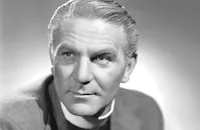
Henry Wilcoxon

Ian Keith

C. Aubrey Smith

Katherine Demille
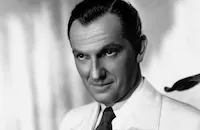
Joseph Schildkraut

Alan Hale

C. Henry Gordon

George Barbier

Montagu Love
Ramsay Hill
Lumsden Hare
Maurice Murphy

William Farnum
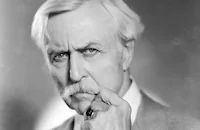
Hobart Bosworth
Pedro De Cordoba

Mischa Auer
Albert Conti
Sven-hugo Borg
Paul Sotoff

Fred Malatesta

Hans Von Twardowski
Anna Demetrio
Perry Askam
Vallejo Gantner
Edwin Maxwell
Winter Hall
Emma Dunn
Georgia Caine

J. Carroll Naish
Robert Adair
Oscar Rudolph
Pat Moore
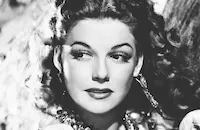
Ann Sheridan
Jean Fenwick

Joseph Swickard
Edgar Dearing

Alphonz Ethier
Gilda Oliva
Mildred Van Buren
John Rutherford
Colin Tapley

Harry Cording
Stanley Andrews
Maurice Black

William B. Davidson

Addison Richards
Guy Usher
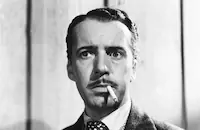
Boyd Irwin
Gordon Griffith
Kenneth Gibson
George Macquarrie
Sam Flint
Harold Goodwin
Crew
Lloyd Ahern
Joseph Aiken
Roland Anderson
Travis Banton
Emily Barrye
Ann Bauchens
Charles Brackett
Russ Brown
Roy Burns
Jack Cooper
Ray Cossar
Kenny De Land
Cecil B. Demille
Fred Geiger
Russ Harlan
Henry Herzbrun
Howard Higgin
George Hippard
Bernice Hook
Gordon Jennings
Joe Kaplan
Rudolph Kopp
Harold Lamb
Harold Lamb
Jack Lefferman
Harry Lindgren
David Macdonald
Jeanie Macpherson
Jeanie Macpherson
Nelly Manley
Robert Mccrillis
William Mellor
Victor Milner
Holly Morse
"curley" Nelson
Lorne Netten
Dudley Nichols
Ted Powell
Leo Robin
Guy Roe
George Scully
Edna Shotwell
Irving Talbot
Daniel Ulrich
William Walling Jr.
Buck Walters
Mont Westmore
Richard A. Whiting
Waldemar Young
Adolph Zukor

Film Details
Technical Specs

Award Nominations
Best Cinematography
Articles
Crusades, The - Cecil B. DeMille's THE CRUSADES on DVD
The Crusades, one of the five movies in The Cecil B. DeMille Collection, opens with typically big DeMille strokes as the Muslim Saracens of Asia overrun Jerusalem, driving out and enslaving Christians, leading to a hermit "holy man" (C. Aubrey Smith, whose very presence usually cues the orchestra) to tell off Saladin (Ian Keith), the "Sultan of Islam," and to vow to gather the Christian nations in battle against him. This long-hair-and-sandals stock character does just that, finally getting to Richard (Wilcoxon) in England, who finds that the old man's offer to pledge to defend Christendom will let him disavow his pledge to marry Alice (Katherine DeMille, the director's adopted daughter). The king of France (C. Henry Gordon) wants this marriage to go through, to ensure Richard won't invade France, and you can practically hear the worry lines pop on le roi's forehead, especially after the Christian nations' troops head to Marseille to board ships to the Holy Land and, in needing to secure provisions for his men, Richard makes a deal to marry the king of Navarre's daughter, Berengaria (Young).
Richard has such initial disregard for this alliance that he sends his sword as a stand-in at the hastily-arranged marriage (hello, Dr. Freud). But once he takes a gander at lovely Berengaria, who'd admired Richard's virile reputation until she saw him treat his men brutally, he forces her to come along to Palestine. His notion that she should assume her wifely duties don't go over so well and, while the Christian-Muslim conflict plays out in larger scale, so does one between the newlyweds. Sometimes the two conflicts intermingle, as a meeting between Richard and Saladin turns into a contest over whose sword is sharper and lets Berengaria see that the Sultan of Islam is, in some ways, more gentlemanly than her husband. Saladin notices her, too.
Whether it's DeMille's "great man" approach to history (Richard's and Saladin's rank-and-file soldiers are all nobodies) or the over-the-top production design (like the council meeting in a remote battle encampment that looks like it took a crew a week to build), The Crusades threatens to plummet of the cliff of credibility if you think about it closely. But, fortunately, the movie doesn't bog down enough to leave room for such close examination. About two-thirds in, just when credibility is at a low, comes a brilliant battle scene in which the Christians storm the walls of Acre, the town where, we're told, the "true cross of our lord" resides. Fireballs catapult their way into the parapets lining the walls, ladders slap up against the fortress-like walls for Christians to ascend, moats splash with the arrivals of soldiers knocked from their climb and liquid fire dumped from cauldrons rains down on the invaders. DeMille was reportedly so demanding on his stunt crew that the men nearly revolted, but they did an intense job.
By this point in the story, Saladin has abducted Berengaria and Richard must find a way to rescue her, prove his love to her and liberate Jerusalem for Christendom. Not surprisingly, Richard essentially fills this inside straight, and The Crusades rewards its hero several times over. (Of course, whenever it gets to religion, which it does a handful of times, DeMille's movie fetishizes it in the most clichéd ways). But Wilcoxon, who combines the gravitas of a classically-trained actor with a winning athleticism, puts you on his side right away. He walks a fine line between the self-confidence that makes Richard appealing to others and the arrogance that Berengaria sometimes see in him. Without him, all of DeMille's spectacle is worthless.
There's been debate over whether The Crusades was a hit or not. Some places (including DeMille's autobiography) claim not, others say it was popular. But its aftermath strongly indicates it was a big-budget flop. Wilcoxon, after getting his big break just before it in DeMille's Cleopatra, settled back into playing featured and supporting roles (often for DeMille), while the director, after having made several non-western historical epics in the early 1930s, wouldn't make another for over a decade. That doesn't sound like the opportunism with which Hollywood usually capitalizes on a hit.
To order The Crusades, go to TCM Shopping.
by Paul Sherman

Crusades, The - Cecil B. DeMille's THE CRUSADES on DVD
The Crusades (1935)
"Audiences are not interested in dates," DeMille wrote in his memoirs, "they are interested in events and their meaning. We chose the year 1187 as the focal point for our story, but did not hesitate to bring in elements from other Crusades before or after that exact time...The history conveyed to the audience by The Crusades was simply that there was a time when Christian men, kings, knights, and commoners, with motives ranging from the purest faith to the blackest treachery and greed, left their homes by the thousands and sought to wrest the Holy Land from its Moslem possessors, who were not, as the propaganda at the time would have it, infidel dogs, but highly civilized and chivalrous foemen...One of my objectives [was] to bring out that the Saracens were a cultivated people, and their great leader, Saladin, as perfect and gentle a knight as any in Christiandom."
And so DeMille bought Harold Lamb's book The Crusade: Iron Men and Saints and used it as a starting point to fashion a tale of King Richard the Lion-Hearted leading his crusaders to Jerusalem to save the city from Saladin. Richard finances his knights by agreeing to marry the Princess Berengaria, but as he is too busy and uninterested to attend his own wedding, the princess marries his sword in an elaborate ceremony. When Richard finally sees Berengaria, he begs her forgiveness - understandably, for Berengaria is played by Loretta Young, one of Hollywood's all-time loveliest actresses. The princess is later captured by Saladin, causing Richard's crusade to take on a personal slant in addition to the religious one. (In casting Berengaria, DeMille said "she must act like Helen Hayes, have the vivacity of Miriam Hopkins, the wistfulness of Helen Mack, and the charm of Marion Davies. As for looks, she must be a combination of all four." After trying unsuccessfully to borrow Merle Oberon from Fox, he went with Young.)
Portraying the hero Richard as a thuggish brute and the villain Saladin as sympathetic adds some interesting dimension to the film, making it something other than just a questionable history lesson. But helping DeMille get away with all this even more was his gift for spectacle. Critics certainly realized this; they regarded The Crusades as a guilty pleasure. Time said, "As a picture it is historically worthless, didactically treacherous, artistically absurd. None of these defects impairs its entertainment value." And The New York Times called it "rich in the kind of excitement that pulls an audience irresistibly to the edge of its seat."
Factual history aside, DeMille went to great lengths to achieve accuracy in his costumes, props, and sets. (The huge Windsor Castle set was especially authentic.) But it was his unparalleled handling of crowd scenes and grand battles which really wowed audiences. The climactic Battle of Acre was the Lord of the Rings epic set-piece of its day. It is still impressive. Unfortunately, all of this made the film so expensive that it lost $700,000 its first time around in theaters - a lot of money in those days. (Eventually, the picture turned a profit via re-releases.)
During the shoot, master comedy director Ernst Lubitsch - then also head of production at Paramount - was a frequent and fascinated set visitor. One day DeMille asked him, "I like Trouble in Paradise [1932] more than I can say. It's like a present from Cartier with the tissue paper just removed. What on earth interests you in my poor efforts?" "I'm hypnotized," replied Lubitsch. "There isn't a cocktail shaker or a tuxedo in sight!"
Some notable casting: DeMille's daughter Katherine plays Alice, Princess of France, and a very young Ann Sheridan plays a Christian girl sold at a slave auction in the opening scenes.
Producer/Director: Cecil B. DeMille
Screenplay: Harold Lamb, Dudley Nichols, Waldemar Young
Cinematography: Victor Milner
Film Editing: Anne Bauchens
Music: Rudolph G. Kopp
Cast: Loretta Young (Berengaria), Henry Wilcoxon (Richard the Lionheart), Ian Keith (Saladin), C. Aubrey Smith (The Hermit), Katherine DeMille (Alice of France), Joseph Schildkraut (Conrad of Montferrat).
BW-123m.
by Jeremy Arnold
The Crusades (1935)
Quotes
Trivia
Director Cecil B. DeMille used the same sets from Lives of a Bengal Lancer, The (1935) in this film.
Stuntman Jack Montgomery, who played a Christian cavalryman in the film, recalled in an interview the tension that existed between director Cecil B. DeMille and the dozens of stuntmen hired to do the battle scenes. The stuntmen resented what they saw as DeMille's cavalier attitude about safety, especially as several stuntmen had been injured, and several horses had been killed, because of what the stuntmen perceived as DeMille's indifference. At one point DeMille was standing on the parapets of the castle, yelling through his megaphone at the "combatants" gathered below. One of them, who had been hired for his expertise at archery, finally tired of DeMille's screaming at them, notched an arrow into his bow and fired it at DeMille's megaphone, the arrow embedding itself into the megaphone just inches from DeMille's head. DeMille quickly left the set and didn't come back for the rest of the day. For the rest of the picture, he never yelled at the stuntmen again.
Notes
Rudolph Kopp and Harold Lamb were the only songwriters listed on the film. Katherine DeMille's name is spelled "De Mille" in the end credits, but is spelled "DeMille" twice in the opening credits. An early Daily Variety news item about this production quotes Cecil B. DeMille as saying that "an epic of the early days of the church militant is particularly timely, now that religious factions are unusually active in matters affecting the whole entertainment world." A Daily Variety news item from February 20, 1935 stated that DeMille would be hiring extras from the Riding Actors Association, an organization of veteran screen horsemen, to act as knights mounted on horses in the film. The "knights" were to wear ninety pounds of armor and heavy helmets that would restrict their vision to small slits. A news item in Hollywood Reporter from April 12, 1935 stated that Paramount property worker Daniel Ulrich had his right leg crushed by the 35-ton siege tower used by DeMille for the Battle of Acre in the film. Electricity in the forty-foot stopped instantly upon contact with Ulrich's leg, thus sparing him his life. The New York Times review remarked on the novel use of the split screen in this film, while Motion Picture Herald devoted a whole page to praise the film's music. The Motion Picture Herald review credits Guy Usher separately as both "Grey Beard" and "Templar." Several members of the cast, including Hobart Bosworth, also appeared in silent DeMille films.
In his autobiography, DeMille credits Cullen Tate along with David MacDonald as assistant director on the film, and states that writer Jeanie MacPherson, uncredited on the film, contributed "to most of my pictures from then on, whether or not she took screen credit for her work." DeMille reports that during production, he was confined to a Los Angeles hospital with a minor illness and convinced nurses to model costumes for him. Although in DeMille's opinion, The Crusades is "one of the best pictures I have ever made," it failed to be a great financial success in its initial release, although the 1936-37 Motion Picture Almanac lists it as a box-office "champion" of 1935. DeMille also writes that the character of the Hermit was meant to suggest Peter the Hermit, Bernard of Clairvaux, "and all the zealous preachers who stirred Europe to arise and take the Cross." It was DeMille's intent to convey a time in history when "Christian men, kings, knights, and commoners, with motives ranging from the purest faith to the blackest treachery and greed, left their homes by the thousands and sought to wrest the Holy Land from its Moslem possessors, who were not, as the propaganda of the time would have it, infidel dogs, but highly civilized and chivalrous foemen." Motion Picture Almanac reports that The Crusades is "that kind of valuable screen merchandise that requires one to work his head off to make the public believe the truth." For his work on the film, cinematographer Victor Milner was nominated for an Academy Award.
This film was the last produced under DeMille's existing contract at Paramount, and when that studio did not pursue new negotiations with the director, Samuel Goldwyn invited DeMille Productions to move as a unit to United Artists. The move would have necessitated a $1,400,000 investment, however, which DeMille Productions did not have. For a time in 1935, DeMille considered retiring from motion pictures, after having directed sixty films, but Paramount's eventual cooperation aided him in his decision to continue. DeMille's new contract gave him his own production unit, with Paramount retaining only approval of story and budget. As reported in Daily Variety, on September 25, 1936, DeMille awarded $500 scholarships to three high school graduates who won an essay contest on "The Crusades." According to modern sources, John Carradine was in the film.

Miscellaneous Notes
Released in United States 1935
Released in United States on Video March 28, 1995
Released in United States 1935
Released in United States on Video March 28, 1995














